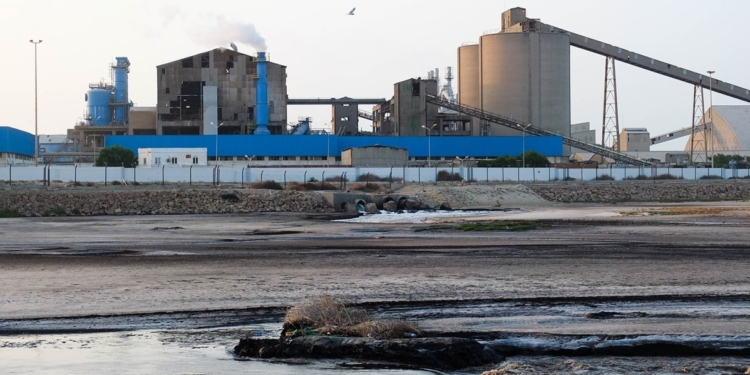“It will take one hundred and fifty years to rehabilitate the Gulf of Gabès,” warns Houcine Rhili, expert in development and hydraulic resources. Invited this Tuesday on Jawhara FM, he described a “critical” situation, where discharges from the Tunisian Chemical Group (GCT) continue to massively pollute the sea and the air.
14,000 tonnes of waste per day in the sea
According to him, nearly 14,000 tonnes of waste are dumped into the Gulf every day, while the Mediterranean Sea “is barely renewed every hundred years”. A broken balance, which requires, according to the expert, the immediate launch of “progressive and realistic solutions”:
“We can’t stop everything overnight, but we can transform the phosphate differently. Cleaner techniques exist, we still need to adopt them.”
Gabès, ecological bomb
Houcine Rhili’s words come as Gabès is suffocating again. Several students from Chatt Essalem college were victims of asphyxiation following a gas leak emanating from a GCT unit. Dozens of children were treated in hospitals in the region, some having lost consciousness.
This incident, far from being isolated, joins a series of toxic leaks which have angered residents. Demonstrations and acts of vandalism recently targeted the regional headquarters of the Chemical Group, a symbol of the frustration that has accumulated over decades.
For Houcine Rhili, the situation goes beyond simple pollution. It is a time bomb that combines economic, health and social issues. “Displacing residents is not a solution, because the fumes spread for kilometers,” he explained, citing “serious” maintenance and security problems, with emissions “five times a month” on average.
He recalls that:
“The GCT does not have the financial means to rehabilitate all of its 13 industrial units, 80% of which require urgent upgrading. The deconstruction of a single unit would cost five billion dinars.”
Faced with this succession of incidents, President Kaïs Saïed summoned the Minister of Industry Fatma Thabet and the Minister of the Environment Habib Abid on Saturday October 11. A joint mission was dispatched to the GCT factory to assess the damage and propose immediate corrective measures.
But on the ground, residents are already talking about a “silent ecocide”, denouncing broken promises and persistent environmental injustice. For many, the Gulf of Gabès remains the symbol of an industrial model that is running out of steam, where the sea and public health continue to pay the price of phosphate.








